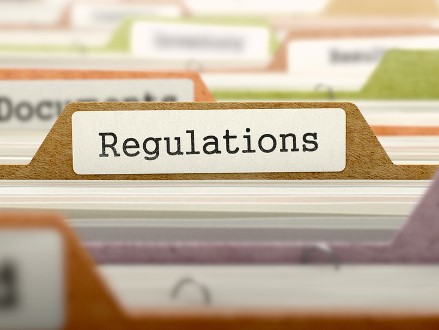
The $146bn franchise sector is highly regulated in Australia, and at the foundation of this governance is the Franchising Code of Conduct.
The Australian Competition and Consumer Commission has regulated the franchise sector since 1998; regular updates have taken place over the years with the most recent changes an overhaul of the Code with the new regulation becoming law in January 2015.
What’s new is a requirement for both franchisors and franchisees to act in good faith at all times and for greater transparency from the franchisor. The new Code also includes court ordered penalties of to $54,000 for certain breaches and allows the ACCC to issue infringement notices.
Why is the Code relevant to franchisees and franchise buyers?
Three key things to know:
- The Franchising Code of Conduct is a mandatory code that has the force of law under the Competition and Consumer Act 2010.
- The Code aims to help prospective franchisees make an informed decision about purchasing a franchise. It also entitles you to specific information during the life of your franchise agreement, and gives you certain rights as your agreement comes to an end.
- The Code also provides a cost-effective dispute resolution procedure.
When does the Code apply?
The Code applies to any franchise agreement in Australia.
A franchise agreement is a written, oral or implied agreement:
- under which one person (the franchisor) grants to another person (the franchisee) the right to run a business supplying goods or services under a certain system;
- that is associated with a trademark or a commercial symbol; and
- under which the franchisee must pay an amount to the franchisor or its associate (e.g. a royalty or training fee).
What are your rights before you sign?
Before you sign up a franchisor must give you:
- an information statement that highlights the risks and rewards of franchising
- a copy of the Code;
- a current disclosure document; and
- a franchise agreement in its final form at least 14 days before you enter into, renew or extend a franchise agreement, or pay a non-refundable amount relating to a franchise agreement.
The franchise agreement
A franchise agreement is a legally binding agreement which sets out your rights and obligations, as well as those of the franchisor. Read it carefully and get legal advice if you don’t understand one or more of its clauses.
The disclosure document
The disclosure document includes critical information that you need to know before you buy a franchise, including the business experience of the franchisor’s officers; details of certain litigation against the franchisor or one of its officers; contact details of current franchisees and some past franchisees; whether you will have an exclusive territory; whether you or the franchisor can sell online; and any restrictions on where you can source goods or services from.
The disclosure document will also include your start-up costs and any other payments you may be required to make; details of what will happen when your agreement ends, including whether you will have an option to renew the agreement and whether you will be entitled to an exit payment; and any requirement to enter into a related agreement (e.g. a lease agreement).
The franchisor is not required to give you earnings information about any of its franchises.
What are your rights after you sign?
As a franchisee you can terminate a new franchise agreement within seven days of entering into it or paying any non-refundable money, whichever happens first. If you do choose to exercise your cooling off rights, the franchisor must provide you with a refund (less any reasonable expenses it has incurred) within 14 days.
The Code of Conduct also provides rules on:
- Franchisor termination and what happens if you breach the agreement
- The transparency around a marketing fund
- Dispute resolution
- Leasing incentives
Alleged breaches of the Franchising Code, or the Competition and Consumer Act 2010, can be investigated by the ACCC, which has the power to take enforcement action if that is appropriate.
Disputes about contractual issues are best resolved directly by the franchisee and franchisor or via a mediator. You can find mediation services through your franchise agreement, local small business commissioner or the Office of the Franchising Mediation Adviser.
Mediation is often a quicker and cheaper option allowing you to continue to work together.

